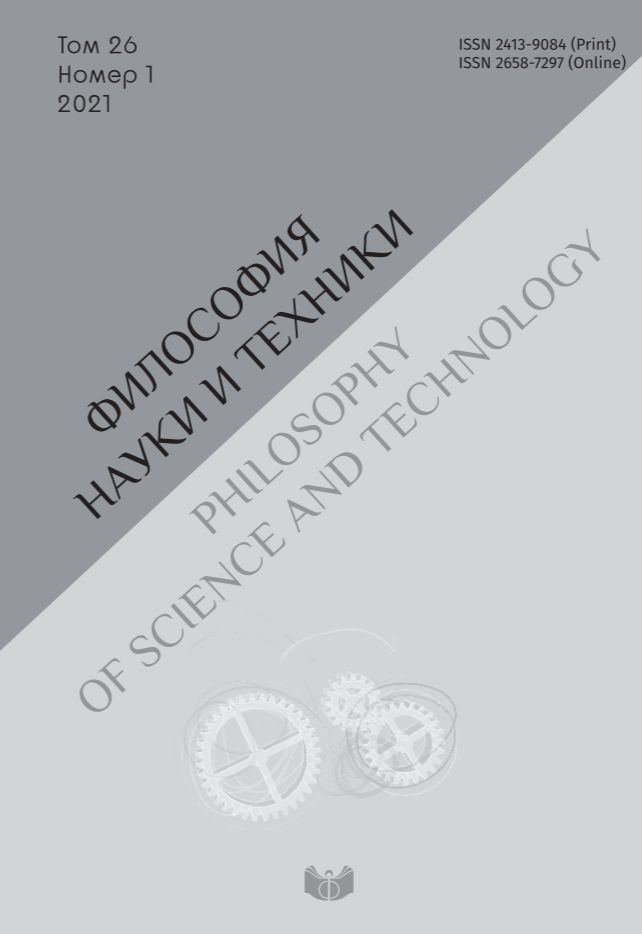From the science foundation program to its research and methodology of science
DOI:
https://doi.org/10.21146/2413-9084-2021-26-1-91-106Keywords:
science, reconstruction, genesis, justification, methodology, study, knowledge, theory, activity, cultureAbstract
The article proposes a reconstruction of the evolution of the concepts of philosophy of science, including the author's concept of science. The basis for such a reconstruction is the distinction between three concepts – justification, study and methodology. Is it possible to assume, the author asks, that the first stage of the formation of the philosophy of science (the concept of positivists and neopositivists) was characterized by a substantiation approach, the second (concepts of T. Kuhn and S. Toulmin) – the point of view of scientific research, the third – the methodology of science. It is the ideas of the concept of substantiation of science, coming from F. Bacon, differently understood in the works of D. Hilbert and L. Wittgenstein, that make it possible to understand the negative attitude of positivists to philosophy, and also why logic was taken to determine the rigor of scientific constructions, and theory was made the central subject of consideration. The transition to the scientific study of science in the works of T. Kuhn and S. Toulmin forced to change this subject (not theory, but the paradigm and evolution of science). The author discusses the conditions for the study of science, showing that the representatives of the second direction relied on social science and the activity approach. The methodological approach to the study of science is analyzed on the example of the ideas of the concept of research programs by I. Lakatos and the implementation of this concept in the study of ancient philosophy by P.P. Gaidenko. The a thor also positions himself as a representative of the methodological approach. He presents the main stages of his own methodological research of science. The main ideas of his concept of science include: the cultural and historical reconstruction of science, thehypothesis of two starts of the formation of science – in antiquity and in the culture of the New Age, characteristics of the “‘genome of science’ that developed in ancient philosophy and re-established in the following cultures, features of “science as social institution of modernity”. The author considers all his constructions ideal-typical and methodological.











